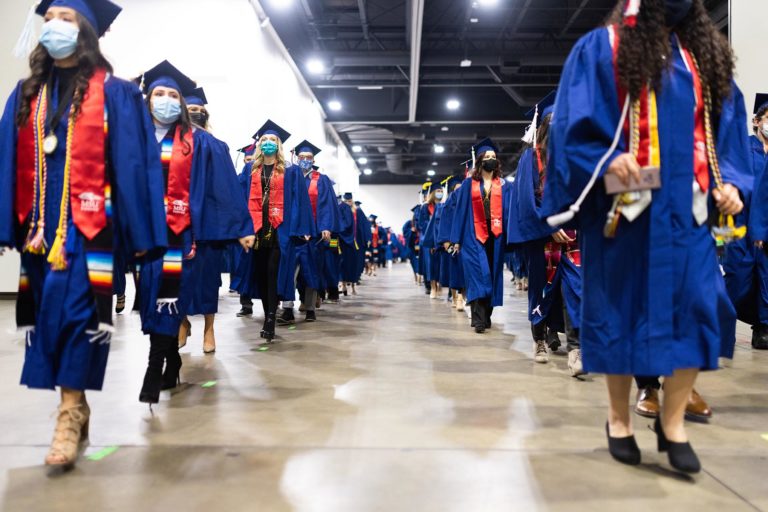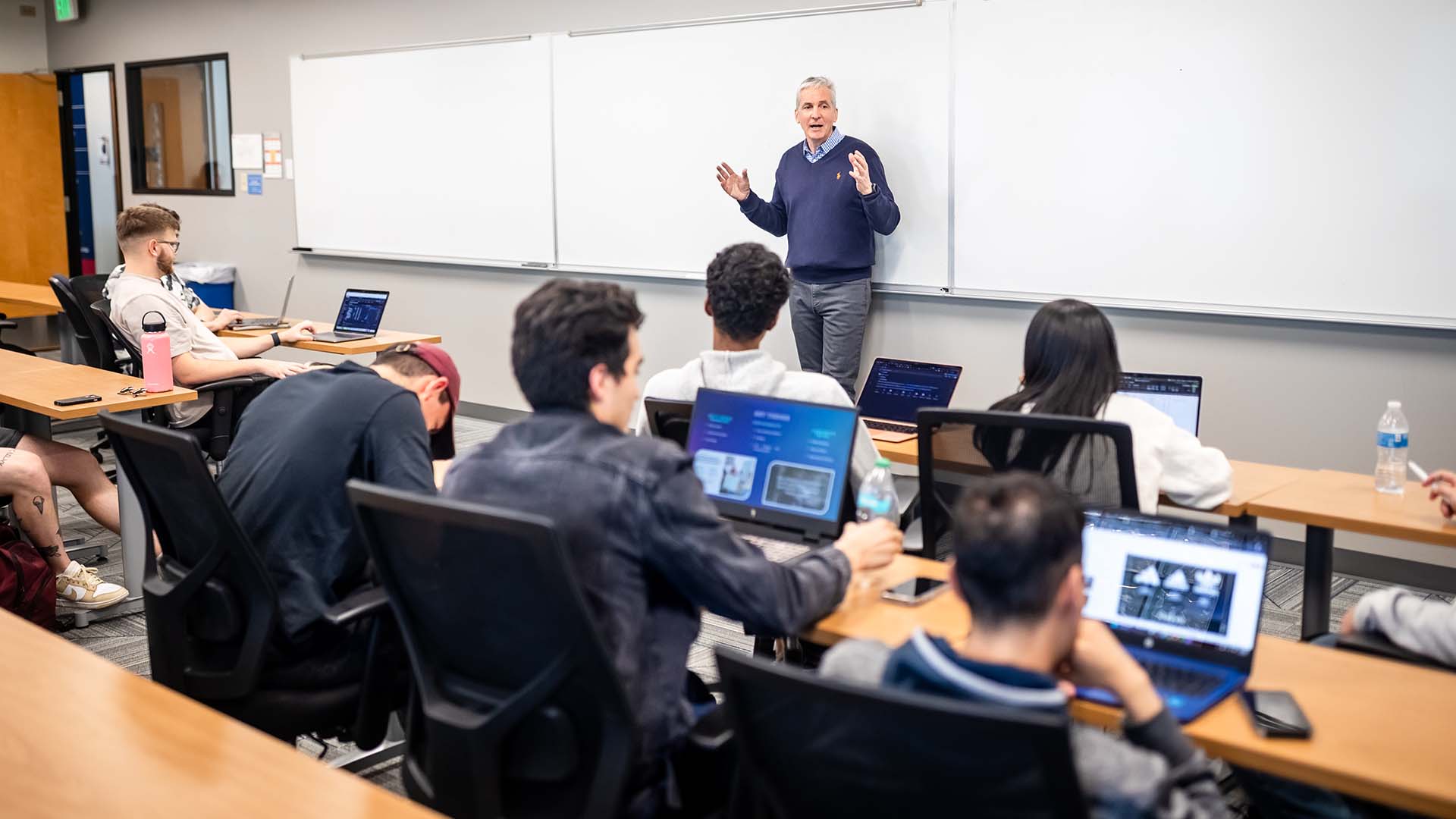Why employers are taking on college costs
In an ultracompetitive job market, more employers are taking on their employees’ student-loan repayments and future tuition costs.

Despite another recent extension, the pandemic-era pause on federal student-loan payments is set to end in May. Given that the country’s collective student-loan debt exceeds $1.7 trillion, that will mean fresh and potentially painful demands on the pockets of millions of hard-pressed workers.
But things may be changing. In the wake of last year’s Great Resignation, employers are hungry for fresh talent and are finding increasingly inventive ways to entice the pick of the crop. Numerous job advertisements now dangle two especially tempting packages as incentives: help with student loans and future tuition costs. And there are good reasons why the trend is growing.
“These benefits, because they still aren’t offered by too many companies, make the employer look more attractive, especially to recent graduates,” said David Bechtold, Ph.D., an associate professor of Management at Metropolitan State University of Denver.
RELATED: Secretary of Labor Marty Walsh joins MSU Denver students to discuss apprenticeships
Helping workers pay off their student loans is a fairly recent idea for employers, but it seems perfectly made for this moment, and companies have been quick to catch on. Just 8% of employers offered such perks prepandemic, but that number shot up to 17% last year and another 31% plan to get on board.
Major players currently investing in the education of their front-line and hourly workers include Target, Walmart, UPS, FedEx, Starbucks and Amazon, which announced this month that it will partner with two schools in Colorado, including MSU Denver.

Back to school
Research by EdAssist Solutions shows that, despite a keen appetite for learning, more than half of aspirational workers over the past five years simply weren’t able to pursue their academic goals due to long hours and insufficient funds. For these reasons, getting extra tuition assistance was almost exclusively the preserve of white-collar workers chasing MBAs and graduate degrees from the comfy seclusion of corporate offices.
This new corporate education model represents a welcome change from decades-old practices. Student-loan assistance is proving particularly popular among an education-hungry workforce, and company support has unlocked the door to learning opportunities for many underrepresented groups.
Amazon’s plan and MSU Denver
Students in the Mile High City will get an opportunity in March to see some real-life worker empowerment in action when MSU Denver launches its new partnership with Amazon’s Career Choice Partner Program.
This initiative has a simple aim: to provide quality tuition assistance for Amazon workers while removing the financial constraints of going back to school. The basic idea is to give Amazon employees an opportunity to learn new skills and gain the kind of valuable qualifications that will help further their careers, whether that’s with Amazon or elsewhere.
Over the past decade, the program has helped more than 50,000 Amazon employees reach their educational goals. And that number is set to rise all over again on the Auraria Campus.
“We’re looking forward to MSU Denver coming on board as an education partner for Career Choice, adding to the hundreds of best-in-class offerings available to our employees,” said Tammy Thieman, global program lead of Amazon’s Career Choice program. “We’re committed to empowering our employees by providing them access to the education and training they need to grow their careers, whether that’s with us or elsewhere.”

Sticking around
Why the sudden burst of corporate generosity? The answer, it turns out, lies in what executives refer to as employee “stickiness.” Providing tuition-related benefits to workers makes them much more likely to stick around.
“Obviously, this kind of support promotes social mobility and makes employees feel valued, which is great,” Bechtold said. “But even more important for employers, it also makes it easier to retain a greater number of key employees — even if some might use their training to advance their careers elsewhere.”
RELATED: Boldly going where few universities have gone
And it really does work. Chipotle, for example, recently reported that its educationally boosted workers are 3½ times more likely to stay with the company than other employees and seven times more likely to move into management.
Given the astronomical costs of recruitment and managing staff turnover, many employers have simply realized that investing in workers who might then stay the course is not only altruistic but is a savvy investment.
Leverage time
Looking at the U.S. job market, the good news for American workers is that, at least for now, they clearly hold serious leverage.
Hundreds of companies will inevitably join the big student-debt-and-tuition-benefit giveaway over the next couple of years. Even when they don’t, there’s nothing to stop job applicants from bringing up these topics themselves. After all: Nothing ventured, nothing gained, right?
“Absolutely,” Bechtold said. “With so many employers struggling to recruit and retain employees, there has perhaps never been a better time to assert your own interests.”
We are witnessing a fundamental change in attitudes regarding the employer-employee relationship, Bechtold said. “It has gone from ‘you’re lucky to have a job’ to ‘we’re lucky to have you’,” he said.
His advice to job applicants and disgruntled employees scouring job websites: “I’d strongly recommend that you grab hold of this cultural shift and take advantage of it while you can.”







